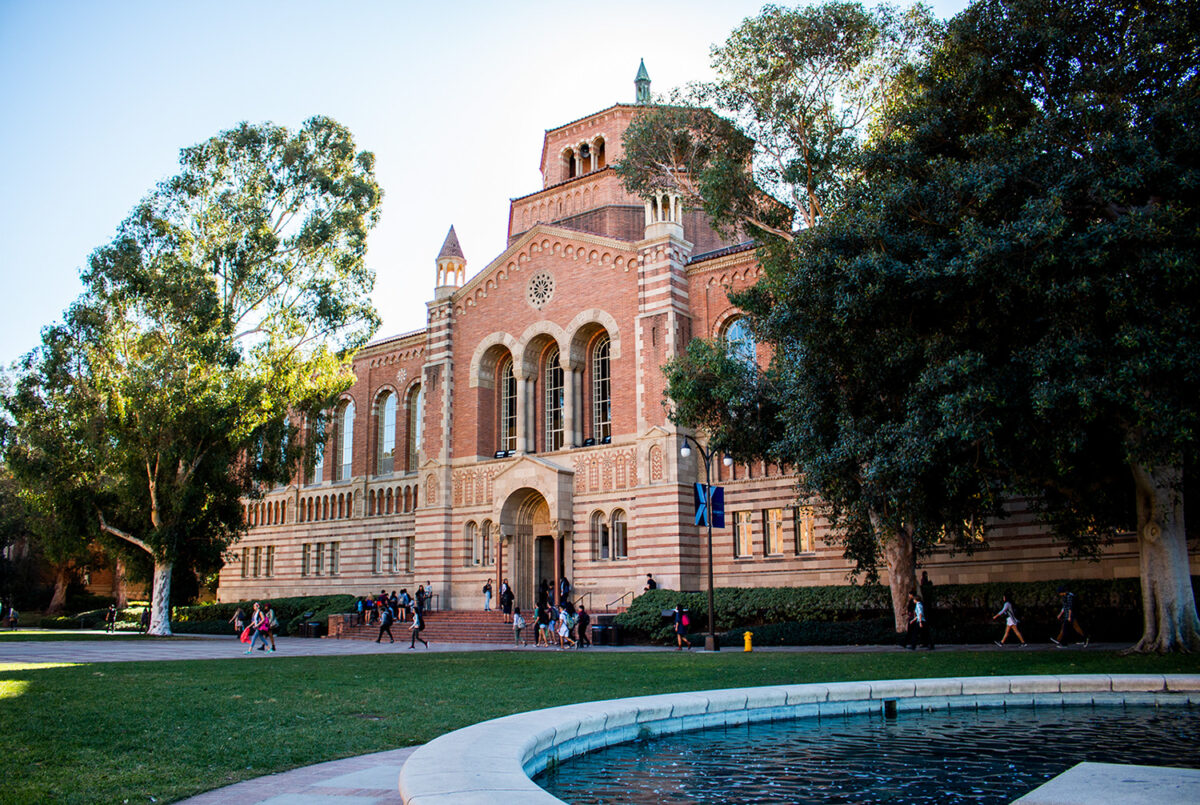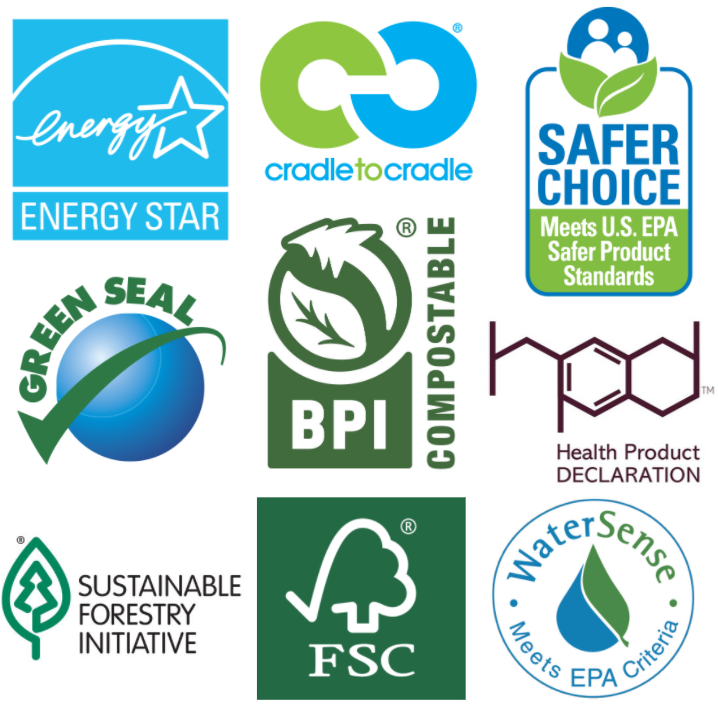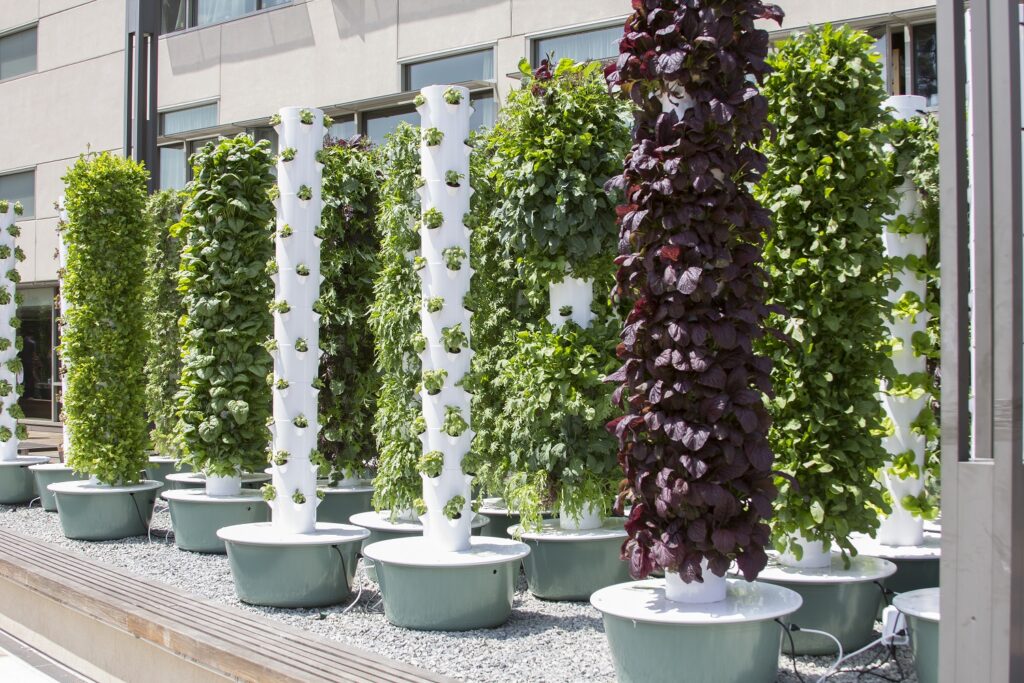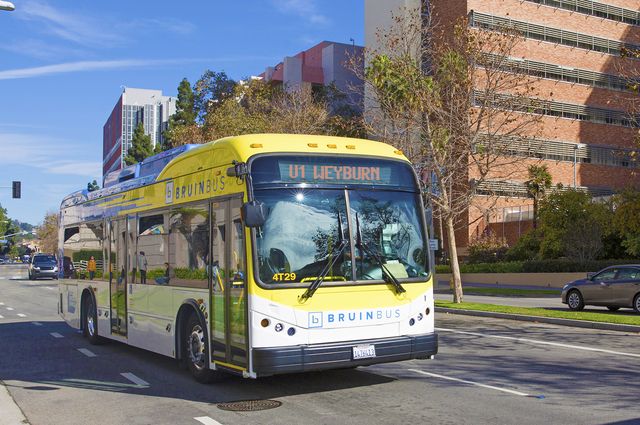
Your journey to sustainability starts here—see how the UCLA community is making an impact and how you can too.
Waste
1. Reduce

Buy and consume less and make sure to use all of what you take.
UCLA is a single-use plastic free campus. Bruins bring their own reusable bags, utensils, and water bottles.
Here is a map of water refill stations across campus.
2. Reuse

After you’ve reduced as much as you can, reuse items rather than disposing of them by following these reuse tips.
Donate or pick-up FREE items from the UCLA Surplus Stop that repurposes items across campus.
3. Recycle

Check out our Waste FAQs to learn what goes in the bins at UCLA.
On the Hill, ALL takeout containers are compostable.
For universal, electronic, and hazardous waste, check out how to dispose of specialty recycling.
Purchasing

Department Buyers
Follow the UC Sustainable Procurement Guidelines for criteria on sustainable products.
Check out the Office Depot Sustainable Purchasing Guide for a list of policy compliant products such as office supplies, electronics, cleaning supplies, and foodware items.

What to Buy
Purchase products with certification labels such as Green Seal, EPA Safer Choice, or FSC and SFI paper.
Buy from UCLA licensee companies with a sustainability designation.
Buy in bulk by minimizing orders and request minimal packaging from vendors.

Where to Shop
Shop secondhand at Craigslist, Nextdoor, Facebook Marketplace, Depop, and thrift stores.
Buy local at Farmers Markets around LA.
UCLA students can refill cleaning and bath supplies at the CPO Office and get stationery and textbooks from the Good Clothes Good People redistribution center.
Food
Choose more plants and less meat or dairy
What you eat matters. The global food system is responsible for roughly one-quarter of the planet-warming greenhouse gases each year.
Reducing your meat intake, especially red meat like beef, is the single most impactful effort you can take to reduce your environmental footprint, and it’s good for your health. There are many delicious and nutritious alternatives to make at home or try at the UCLA Dining Halls.
Be sustainable at home and in dining halls
Our Zero Waste Kitchen Companion guides you on how to implement sustainable practices in your kitchen.
In the dining halls, take only what you can eat and drink to help reduce food waste and go tray-less to save water.
Look for green earth symbols on the dining menu for low-carbon footprint, vegan, and vegetarian options. Check out this Guide to vegan-friendly eating at UCLA.

Water & Energy

Conserve Water
- Take shorter showers with cooler water.
- Only do full loads of laundry.
- Fix leaky faucets.
- Install low-flow fixtures and energy and water efficient appliances.
- Conduct a water audit to help make UCLA more water efficient.
- Change your diet to reduce your water footprint. Refer back to the Food section.
- Learn more about droughts and what you can do to help.
Save Energy
- Use less heating and A/C. A good rule of thumb is to set the thermostat to 78°F in the summer and 68°F in the winter.
- Wash your laundry on cold and hang dry instead of using a dryer.
- Turn off everything before you leave. Use power strips and switch them off when they are not in use.
- Enable standby or sleep mode on your computer.
- Replace bulbs with LED lights that can save up 80% more electricity.
See Something, Say Something

Use the UCLA 311 app or submit a Facilities Service Request to report maintenance issues on campus as soon as you spot them.
Some issues to look out for include:
- Outdoor Lights that are on during the day (other than parking lights)
- Leaking water fixtures: sprinklers, faucets, toilets, showers, water fountains
- Classrooms or lecture halls that are too hot/cold
- Overshooting water fountains
- Flickering lights
- Rodents, pests, or bees
- Overflowing garbage cans
- Graffiti or tagging
Transportation

Public Transit
Public transportation is one of the most cost-effective and reliable forms of sustainable transportation regardless of how far you live from campus.
UCLA Transportation subsidizes transit pass costs for seven transit agencies for eligible UCLA students and employees. Those who are new to riding transit may be eligible for a free quarterly Bruin Commuter Transit pass.

Bike
Riding a bicycle is a fun, healthy, and inexpensive way to get to campus if you don’t live too closeby.
Take advantage of the 3,000+ bike racks and lockers and the on-campus UCLA Bike Shop.

Walk or Scooter
For those who live on or near campus, walking, skateboarding, or scootering around campus is the most popular and effective way to get around.
UCLA has partnered with Lyft, Bird, and Wheels to bring e-scooters to campus.
Green Events
Make Your Event Green
Use the Green Events Certification for your next event!
- Follow the Green Events Certification guidelines
- Apply for a UCLA Green Events Certificate
- Green catering options and tips
Questions? please contact: zerowaste@ucla.edu

Green Labs

Demonstrate your commitment to sustainability by becoming Green Lab Certified.
Utilize the UCLA Environment, Health, & Safety Hazardous Waste management resources, pick-up services, and drop off-location when working with hazardous waste.
Download lab recycling and composting signage for your waste bins.
Adopt the 12 Principles of Green Chemistry to create a more sustainable lab space.
Utilize this Freezer Maintenance Guide to use space and energy more efficiently.
For general environmental safety inquiries: (310) 825-5689
Student Opportunities

Funding Through TGIF
The Green Initiative Fund (TGIF) is a $200,000 annual grant-making fund for student-initiated sustainability projects on UCLA’s campus, like installing solar panels at Ackerman and putting on plant care workshops.

Research
Join Sustainability Action Research (SAR) and participate in a student-operated program where students team up with campus stakeholders to research and implement actionable solutions to sustainability issues.

Innovate
Participate in the UCLA Sustainable LA Grand Challenge (LAGC) which pairs faculty, researchers, students, and collaborators to pursue innovative research projects aimed at addressing energy, water, and ecosystem health in LA County.

Volunteer
Apply to become a volunteer intern with the UCLA Office of Sustainability and help on a variety of projects around campus.

Student Organizations
Whether you are interested in beekeeping, climate policy, or environmental justice, there is a student organization for you.

Sustainability Task Force
Join a sustainability task force at UCLA to inform sustainability policies on campus. Contact sustainability@ucla.edu for more information.
